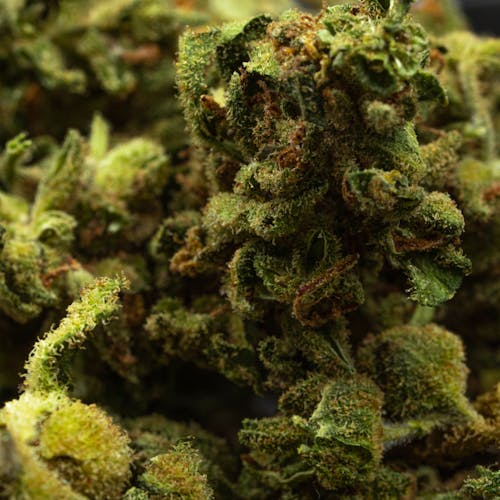- Understanding THC: The Basics
- Medical Benefits of THC
- THC and Pain Management
- THC’s Role in Anxiety Relief
- Exploring THC for Sleep Disorders
- THC in Cancer Treatment: What You Need to Know
- The Impact of THC on Appetite Stimulation
- THC and Neurological Disorders: A Potential Solution
- What Dose of THC Is Good for a Beginner?
- What Is Hybrid THC Good For?
- Conclusion
Understanding THC: The Basics
Before diving into THC’s benefits, let’s cover the basics. THC, short for tetrahydrocannabinol, is one of many cannabinoids in cannabis. When consumed, it interacts with the body’s endocannabinoid system, which regulates various physiological functions.
THC binds to cannabinoid receptors in the brain, producing effects like euphoria, relaxation, and altered perception. It’s important to note that THC can also cause side effects like anxiety or paranoia, especially in high doses.
THC’s psychoactive properties stem from its similarity to anandamide, a neurotransmitter the body naturally produces. When THC binds to receptors, it disrupts normal neurotransmitter function, leading to the altered states commonly associated with cannabis use. This disruption can also affect memory, coordination, and decision-making, so it’s crucial to use THC responsibly.
Research shows that THC may offer therapeutic benefits, such as pain relief, muscle relaxation, and appetite stimulation. Medical cannabis patients often use THC-rich products to alleviate symptoms of chronic pain, multiple sclerosis, and chemotherapy-induced nausea.

Medical Benefits of THC
Despite its psychoactive effects, THC has shown great promise as a therapeutic compound. Research suggests that THC may have analgesic properties, making it effective for managing chronic pain. It’s believed to interact with pain receptors in the central nervous system, reducing pain perception.
THC also stimulates appetite and combats nausea, which is beneficial for individuals undergoing chemotherapy. It can help alleviate chemotherapy-induced nausea and increase food intake, helping patients maintain proper nutrition.
THC shows promise in managing neurological disorders. Studies suggest it may have neuroprotective properties, potentially slowing the progression of conditions like multiple sclerosis and Parkinson’s disease.
Recent research indicates THC could help reduce inflammation in the body. Chronic inflammation is linked to diseases like arthritis and inflammatory bowel disease. By targeting specific immune pathways, THC may help control inflammation and provide relief.
THC may also improve sleep patterns for those with insomnia. By interacting with the endocannabinoid system, THC can help regulate sleep cycles and promote relaxation, leading to better sleep quality.

THC and Pain Management
THC’s analgesic properties make it valuable for pain management. Chronic pain can significantly impact quality of life, and THC can help by reducing inflammation and altering pain signals in the brain.
Finding the right dose of THC is crucial. Too little may be ineffective, while too much could lead to unwanted side effects. It’s best to work with a healthcare professional experienced in cannabinoid therapy to determine the optimal dose.
Different methods of THC administration can affect its onset and duration of effects. Inhalation, oral ingestion, or topical application each has its advantages, and understanding these can help you choose the best method for your pain management needs.
THC’s Role in Anxiety Relief
Contrary to popular belief, THC can help reduce anxiety in certain doses. It’s believed to work by binding to cannabinoid receptors in the brain, which can modulate anxiety-related signals.
However, THC’s effects on anxiety can vary widely. Some may find relief, while others might experience heightened anxiety. Start with a low dose and monitor your response. If you have a history of anxiety disorders, consult a healthcare professional before using THC.
Research into THC’s role in anxiety relief is ongoing, with scientists exploring how it interacts with the brain’s endocannabinoid system. The presence of other cannabinoids, like CBD, may influence THC’s effects on anxiety, highlighting the importance of choosing the right cannabis product.
Exploring THC for Sleep Disorders
Sleep is essential for overall well-being, and THC may hold potential for those with sleep disorders. THC has been reported to have sedative properties, promoting relaxation and helping with sleep.
However, THC’s relationship with sleep is complex. While it may help some people fall asleep faster, it can also impact sleep quality by reducing REM sleep and dreaming, which are important for cognitive function.
If considering THC for sleep, approach it with caution. Finding the right dose and method of administration is key to balancing falling asleep faster with achieving restful sleep. Always consult a healthcare professional for personalized guidance.
THC in Cancer Treatment: What You Need to Know
THC has garnered significant attention in cancer treatment. While not a cure, it may offer supportive benefits to individuals undergoing chemotherapy or radiation.
THC can help combat nausea and stimulate appetite, which are crucial for cancer patients. Chemotherapy often causes severe nausea and appetite loss, leading to weight loss and poor nutrition. THC may help alleviate these side effects, making treatment more manageable.
Some studies suggest THC may have anti-tumor properties, potentially inhibiting the growth of certain cancer cells. However, more research is needed to fully understand THC’s role in cancer treatment.
THC is also known for its pain-relieving properties, which can be particularly beneficial for cancer patients. By interacting with the body’s endocannabinoid system, THC can modulate pain perception and provide relief without the risks associated with opioid painkillers.
The Impact of THC on Appetite Stimulation
THC is well-known for stimulating appetite, often leading to the “munchies.” This effect can be beneficial for individuals struggling with appetite loss due to conditions like HIV/AIDS or eating disorders.
THC increases appetite by activating brain areas responsible for regulating hunger. It may also enhance taste and smell, making food more appealing and enjoyable.
While THC’s appetite-stimulating effects can be helpful, excessive consumption can lead to overeating and weight gain. It’s important to find a balance to harness THC’s benefits without negative consequences.
THC and Neurological Disorders: A Potential Solution
Neurological disorders like multiple sclerosis, Parkinson’s disease, or epilepsy can have a profound impact on life. THC’s interaction with the endocannabinoid system may help modulate symptoms like muscle spasticity, tremors, and seizures.
Research suggests THC may also have neuroprotective properties, potentially slowing the progression of certain neurological disorders. However, it’s important to note that THC is not a cure, but it can provide symptomatic relief and improve quality of life.
Always consult a healthcare professional to determine the best course of action for managing neurological disorders.
What Dose of THC Is Good for a Beginner?
If you’re new to THC, start with a low dose to gauge your sensitivity and response. Begin with 2-5mg of THC and gradually increase until you reach the desired effects.
Everyone’s tolerance to THC varies, so it’s important to listen to your body and adjust your dosage accordingly. If unsure, consult with a cannabis-educated healthcare professional.
The method of consumption also matters. Inhalation offers quicker effects, while edibles take longer but last longer. Understanding these differences can help you choose the best method for your needs.
What Is Hybrid THC Good For?
Hybrid THC strains combine characteristics of indica and sativa varieties, offering a balanced experience. They can provide relaxation, pain relief,


Share and get 15% off!
Simply share this product on one of the following social networks and you will unlock 15% off!